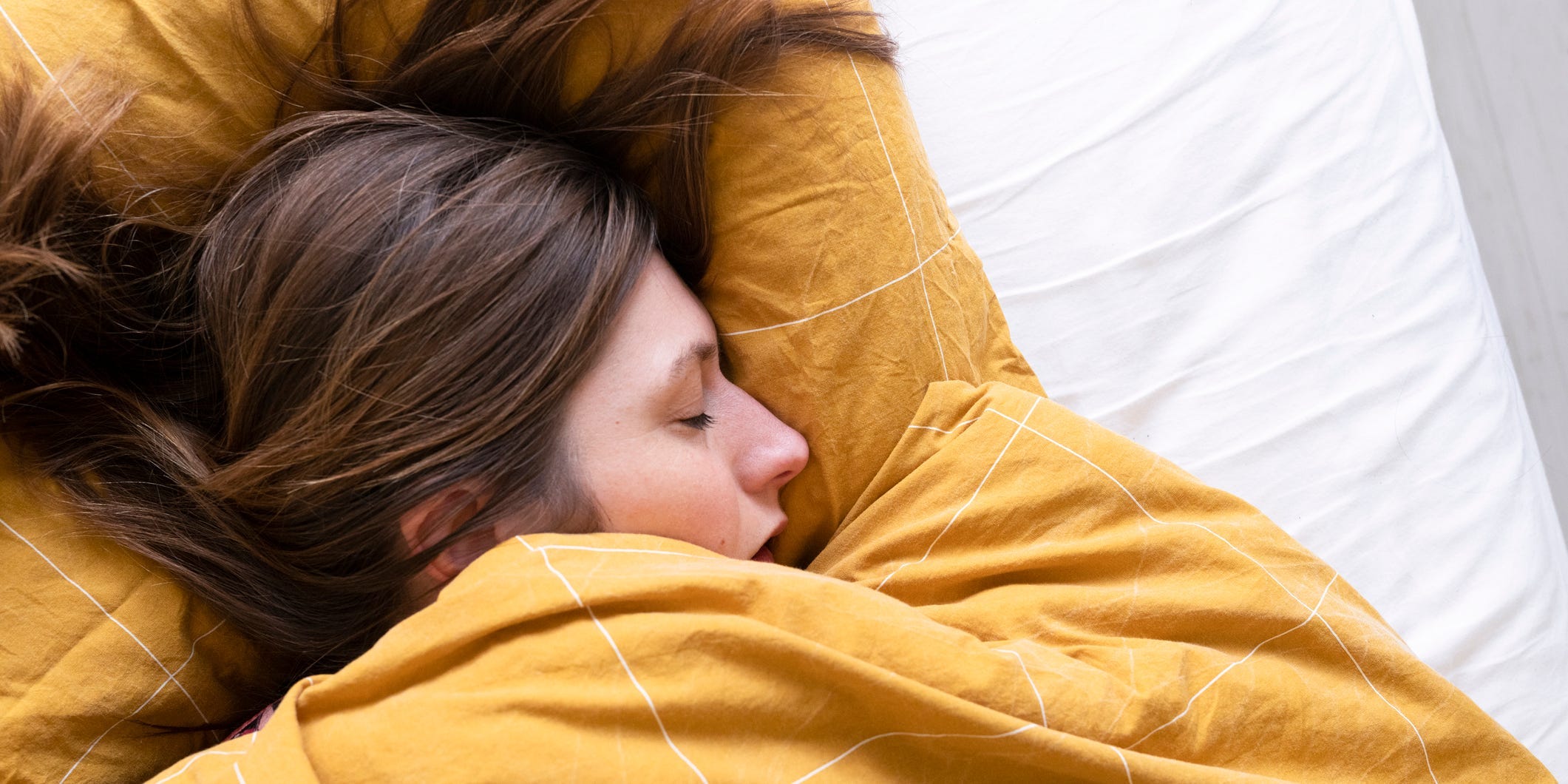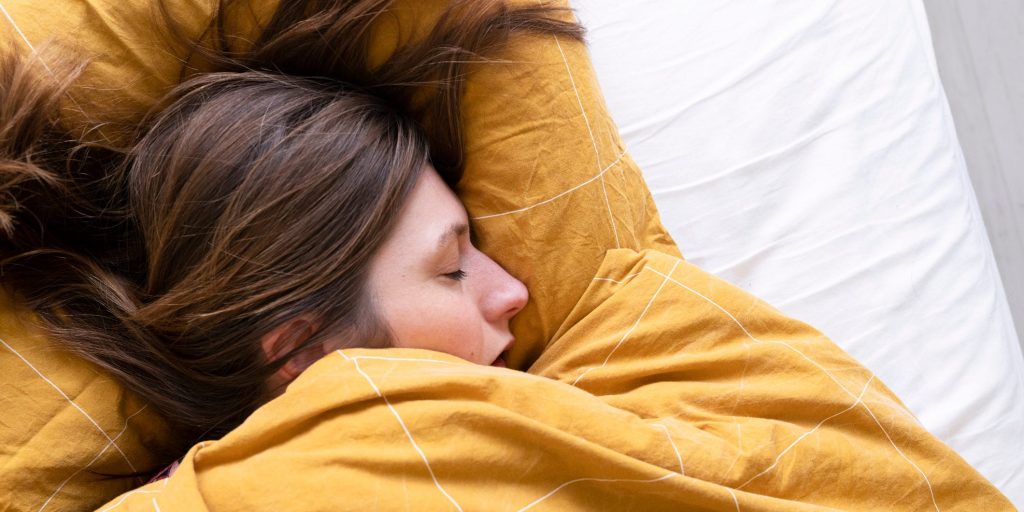
Roos Koole/Getty Images
- Sleeping on your back is generally considered the best sleeping position by experts.
- Side sleeping might help alleviate certain medical conditions like acid reflux and back pain.
- Sleeping on your stomach is considered the worst sleeping position and should usually be avoided.
- Visit Insider's Health Reference library for more advice.
Getting proper sleep is critical for overall health. For example, it helps us repair muscles and strengthen memory, according to the National Sleep Foundation.
However, a prolonged lack of sleep from pain or sleeping in the wrong position, increases your chances of developing conditions like heart disease, obesity, and infections.
That's why it's important to make sure you're sleeping in the right position that will help you get enough quality sleep each night.
Sleeping on your back
Standing or sitting upright all day puts added pressure on your spine and joints, Arya N. Shamie, MD, professor and chief of spine surgery at the University of California Los Angeles's David Geffen School of Medicine. But sleeping on your back provides a respite from gravity's constant pull.
Moreover, laying down relieves pressure on your spinal discs which is great for patients whose vertebrae have experienced wear-and-tear such as those with degenerative disc disease. That's why many experts agree that, for the average adult, the best position to sleep in is on your back.
Sleeping on your back may also counteract the effects of slouching forward over a desk all day. As you slouch, the bones in the upper arms tend to slide forward, which can lead to an injury called shoulder impingement that can lead to a loss of sleep at night. Sleeping on your back can mitigate the effects of slouching forward, by opening up the shoulders and pecs.
Sleeping on your side
Sleeping on your side may be comfortable for many, and can be helpful if you have certain medical conditions. If you have one of the following medical conditions, sleeping on your side might help you get a better night's sleep.
- Acid reflux. Cyril says there is evidence that sleeping on your left side can reduce stomach and bowel problems like acid reflux, possibly because the esophageal sphincter muscle - which separates the stomach and esophagus and prevents acid reflux when closed - is able to relax more.
- Certain back pain. For those who have back pain that is exacerbated by walking or standing, Cyril suggests sleeping on your side with your knee towards the chest to help alleviate the pain.
- Lumbar stenosis. A condition called lumbar stenosis, which is common as you age, causes people to feel more comfortable flexing forward a bit, like bending over a shopping cart, or hunching over a desk. These people may like side-sleeping, so their backs aren't extended, says Shamie.
- Pregnancy. Pregnant women should also sleep on their side, especially after four months. That's because the developing baby can put pressure on important organs like your lungs and heart, says Marko.
However, side sleeping may cause joint and spine discomfort for some. If you have a hip-related issue like bursitis - which causes sacs that cushion your tendons and bones to become irritated - side-sleeping can potentially aggravate your pain.
Sleeping on your stomach
Those who sleep on their stomach might want to reconsider. This position not only overextends your neck, but it also forces your head to turn, possibly resulting in neck problems down the line. Experts recommend sticking to sleeping on your side or back.
However, if you find sleeping on your stomach too comfortable to give up, Marko says there is one modification you can make to reduce the risk of neck pain or injury. Bunch up a pillow and place it below the knee on the side you're facing. This will rotate or tilt you to one side, easing the strain on your neck.
Why finding the right mattress matters
Find a mattress that's not too stiff and not too soft, says Marko. When your bed is too soft, your torso curves inward, stressing your spine. And, when your mattress is too firm, your spine is actually extended beyond what is comfortable for most people.
Shamie also notes that most people change their sleeping position on average nine times a night. So, it's best to have a pillow, like one made with foam, that conforms to your sleeping position as you shift around.
Insider's takeaway
Finding the right position to doze off in will vary across individuals as each body is different. But, most sleep experts agree sleeping on your back is probably best whereas sleeping on your stomach should be avoided when possible.
